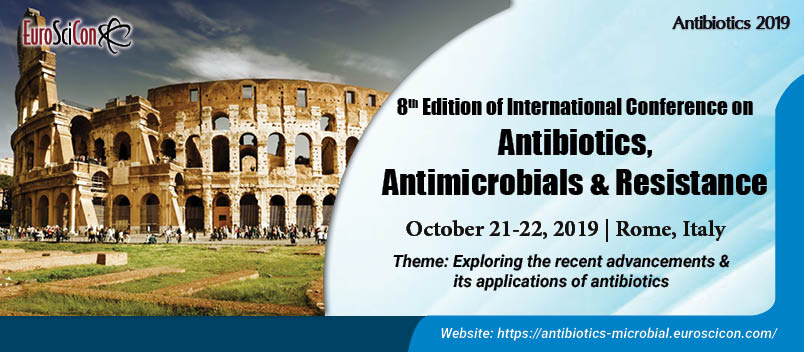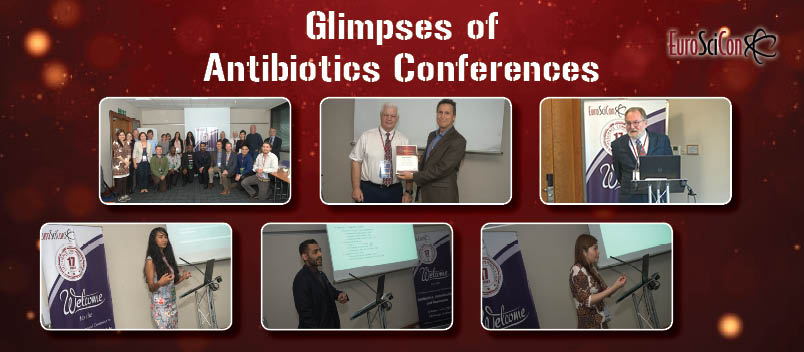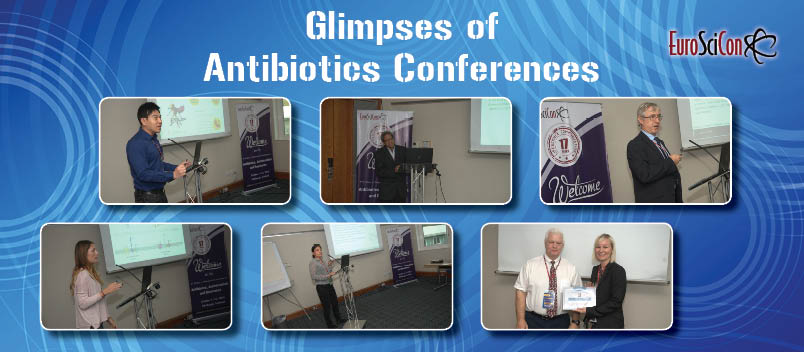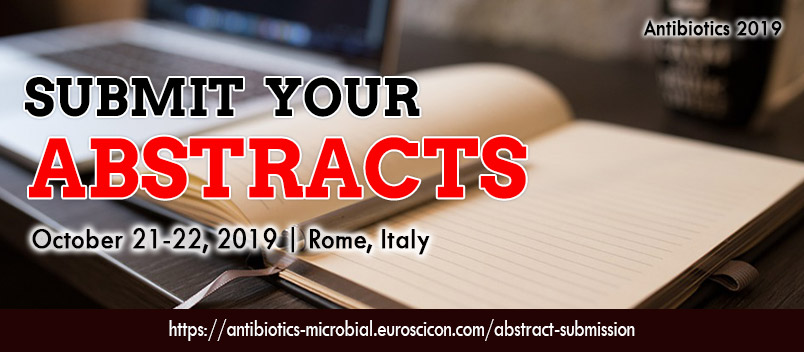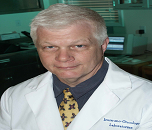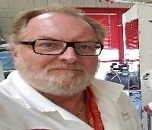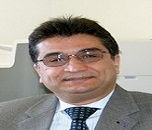Antibiotics 2019
About Conference
ABOUT CONFERENCE
EuroSciCon welcomes you to attend the 8th Edition of International Conference on Antibiotics, Antimicrobials & Resistance during October 21-22, 2019 Rome, Italy. We cordially invite all the participants who are interested in sharing their knowledge and research in the area of Antibiotics, Antimicrobials and Resistance with the theme “Exploring the recent advancements & its applications of antibiotics”. International Conference on Antibiotics 2019 mainly focuses on Discovery of Antibiotics, Antibiotic Therapy, Production in Antibiotics, Antibiotic Resistance and Prevention, Antimicrobial Resistance, Pharmacology of Antibiotics, Medical Use of Antibiotics, Antibiotics in Oncology, Antibiotics of Veterinary Importance and others.
What’s new?
Antibiotics 2019 includes international attendee workshops, lectures and symposia, including a designated registration area, a refreshment break and gala lunch. Antibiotics educators can join the EuroSciCon as an international member to receive discounts on registration. So, come and join leading experts and allied professionals from October 21-22, 2019 Rome, Italy to keep up with the rapidly accelerating pace of change that is already having an impact in the field of Antibiotics and will continue in the future too.
About Rome, Italy
Rome is the capital city of Italy located in the central western position of Italian peninsula along the shores of the river Tiber. It is the fourth most populous city in the European Union. It is a famous tourist location and is the 13th most visited city in the world. It is known for its history. The average temperature in Rome is 20 degree Celsius during day time and around 10 degree Celsius during night. The language spoken here is Latin. Rome is a major international center for higher education containing numerous academies, colleges and universities. Rome ranked as 62nd in the world and top in Italy in its World University Ranking.
Past Conference Report
Antibiotics 2018
The 6th Edition of International Conference on Antibiotics, Antimicrobials & Resistance was held on October 11-12, 2018 in Edinburgh, Scotland with the presence of professional researchers, scientists involved in the development of high-quality education & research in all aspects.
Antibiotics 2018 witnessed an amalgamation of peerless speakers who enlightened the crowd with their knowledge and confabulated on various topics related to Antibiotics. The highly exalted conference hosted by EuroSciCon was marked with the attendance of renowned and brilliant researchers, business delegates and talented student communities representing more than 20 countries around the world. The conference has tried grounding every aspect related to Antibiotics, covering all the possible research areas.
The conference aimed a parallel rail with theme “Magic Bullets Targeting Deadly Microbes and Improving World Health”. The meeting engrossed a vicinity of cognizant discussions on Discovery of Antibiotics, Antibiotic Therapy, Production in Antibiotics, Antibiotic Resistance and Prevention, Antimicrobial Resistance, Pharmacology of Antibiotics, Medical Use of Antibiotics, Antibiotics in Oncology, Antibiotics of Veterinary Importance and others.
We are thankful to all our speakers for encouraging and supporting us to conduct the conference and catapulting the same to pinnacle of success.
The Organizing Committee would like to thank the moderators; Lakhbir Kaur, University of Central Lancashire, UK and Mihir Yatin Trivedy, Chorley and South Ribble Hospital, UK for their valuable contribution which resulted in smooth functioning of the conference.
We would also like to thank our Poster judge Lovisa Ringstad, RISE Research Institutes of Sweden, Sweden for the evaluation of Poster Presentations.
The meeting was embarked with an opening ceremony followed by Keynote Sessions and followed by series of lectures (Oral & Posters) delivered by Honorable Guests and members of the Keynote forum. The highlights of the meeting were the eponymous lectures, delivered by:
- John James Stewart Cadwell, FiberCell Systems Inc, USA
- Jerry T Thornthwaite, Cancer Research Institute of West Tennessee, USA
- Sunil Palchaudhuri, Wayne State University School of Medicine, USA
- Cindy Gunawan, University of Technology Sydney, Australia
- George Hanna, Medical Univeristy of South Carolina, USA
- Libor Kvitek, Palacky University, Czech Republic
- Mihir Yatin Trivedy, Chorley and South Ribble Hospital, UK
- Flavia De Bernardis, Higher Institute of Health, Italy
- Libera Latino, University of Paris-Saclay, France
- Urszula Godlewska, Jagiellonian University, Poland
- Nuvee Prapasarakul, Chulalongkorn University, Thailand
- Vineeta Singh, ICMR - National Institute of Malaria Research, India
- Farzana Rashid, Lahore College for Women University, Pakistan
- Alan W Decho, University of South Carolina, USA
- Lovisa Ringstad, RISE Research Institutes of Sweden, Sweden
- Adam Whelan, Defence Science and Technology Laboratory, UK
- Andrea Szabo, University of Szeged, Hungary
- Jan Kormanec, Institute of Molecular Biology, Slovak Republic
- Renata Novakova, Institute of Molecular Biology, Slovak Republic
- Alex Maughan, Papworth Hospital, UK
- Gosha Wojcik, Edinburgh Napier University, UK
- Erika Kapp, University of the Western Cape, South Africa
- Helene Barreteau, University of Paris-Saclay, France
- Silke Salavati, University of Edinburgh, UK
- Lakhbir Kaur, University of Central Lancashire, UK
- Collins Njie Ateba, North West University, South Africa
- Samuel Oppong Bekoe, Kwame Nkrumah University of Science and Technology, Ghana
- Paul J M Sessink, Exposure Control Sweden AB, Sweden
All of them provided their fruitful contributions in the form of highly informative presentations and made the conference a top notch one.
EuroSciCon is prerogative to thank the Organizing Committee Members, Keynote speakers and Chairs on transcribing the plenary sessions and workshop in a diversified and variegate manner to make this conference an enviable artefact.
Antibiotics 2018 would not have reached the pinnacle if not with the support of International, multi-professional steering committee and coordination of Insights in Journal of Infectious Diseases and Treatment and journal of microbiology and immunology.
Please click on the following link to visualize the Conference Photographs
Also find the Conference Proceedings --> Antibiotics 2018 Proceedings
With the grand success of Antibiotics 2018, we are glad to announce our next upcoming conference “8th Edition of International Conference on Antibiotics, Antimicrobials & Resistance” which is going to be held in Rome, Italy during October 21-22, 2019.
Bookmark your dates…!!
Hoping to meet you again coming year at Rome!!!
Sessions/Tracks
Track 1: Discovery of Antibiotics
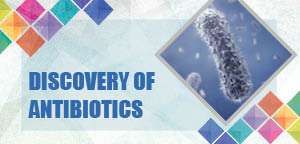
Innovation has been a noteworthy driver of advances in medication disclosure. Computerization, Nano fluidics, imaging, programming and test advances have assumed a noteworthy part in showing signs of improvement information, quicker. Is medication disclosure at such a propelled state, to the point that further upgrades are did not require anymore or practical? There are diverse feelings on this and a great part of the proof is narrative, yet innovation advancement is basic to the change of the medication disclosure process and worth talking about.
Track 2: Antibiotic Therapy
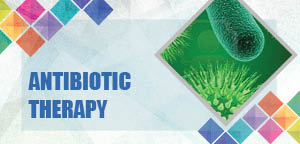
Key to all great antibiotic (or any other) treatment is conclusion to the principles. At whatever point an anti-infection is endorsed it ought to be for a particular finding whether it is a conditional clinical conclusion or not. An anti-infection ought not to be endorsed for a "urinary tract contamination" it ought to be recommended for cystitis, pyelonephritis or prostatitis for instance. Recommending and antibiotic for a "hack" is incredible. Hack could be a side effect of many conditions with pneumonia or serious COPD intensification being the main particular conditions for which anti-microbial treatment is demonstrated. Every time you mull over solution of an anti-microbial choose a particular determination. Your antibiotic decisions can then be educated by trusted treatment rules, for example, these made in the Vancouver Island Health Authority.
Track 3: Production in Antibiotics
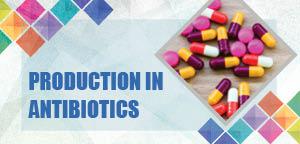
Antibiotics are resulting of optional digestion system which restrains development procedures of different life forms notwithstanding when utilized at low fixations. The antibiotic penicillin was found by Fleming in 1929. Albeit more than 300 anti-microbial mixes have been separated just 123 are as of now delivered by aging. Furthermore, more than 50 anti-microbials are created as semisynthetic mixes, and three anti-infection agents, chloramphenicol, phosphonomycin and pyrrolnitrin are delivered totally artificially.
Track 4: Antibiotic Resistance and Prevention
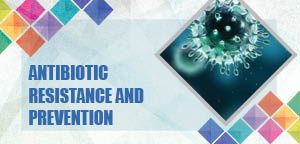
Antibiotics are the medicines used to prevent and treat bacterial infections. Antibiotic resistance occurs when bacteria change in response to the use of these medicines. Bacteria, not animals or humans, become antibiotic-resistant. These bacteria may infect animals and humans, and the infections they cause are harder to treat than those caused by non-resistant bacteria. Antibiotic-resistant bacteria can spread to relatives, family members, classmates, and co-workers, and may threaten our community. Antibiotic resistance leads to prolonged hospital stays, higher medical costs, and increased mortality.
Antibiotic resistance is caused by the misusage and overuse of antibiotics, as well as poor infection prevention and control. Steps can be taken to reduce the impact and curb the transmission of resistance. Use antibiotics only when prescribed by an authorized health professional. Don’t use leftover antibiotics. Infections can be prevented by washing hands regularly, preparing food organically, avoiding contact with ill people and keeping vaccinations up to date.
Track 5: Antimicrobial Resistance
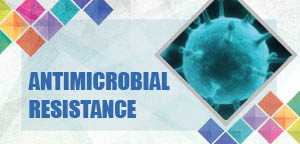
Antimicrobial resistance (AMR) is the capability of a microbe to prevent the effects of medication already used to treat them. Resistance emerges through one of three manners: natural resistance in certain types of genetic mutation, bacteria, or by one species acquiring resistance from another. Resistance can be present automatically because of accidental mutations; or progressive buildup over time, and because of over usage or misuse of antimicrobials or antibiotics. Resistant microbes are difficult to treat, compelling another medications or higher doses, which may be harmful or costly. Antimicrobial resistance is one of the causes for millions of deaths worldwide every year.
Track 6: Drug Discovery Technologies in Antibiotics
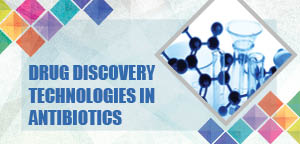
Innovation has been a noteworthy driver of advances in medication disclosure. Computerization, Nano fluidics, imaging, programming and test advances have assumed a noteworthy part in showing signs of improvement information, quicker. Is medication disclosure at such a propelled state, to the point that further upgrades are did not require anymore or practical? There are diverse feelings on this and a great part of the proof is narrative, yet innovation advancement is basic to the change of the medication disclosure process and worth talking about.
Track 7: Pharmacology of Antibiotics
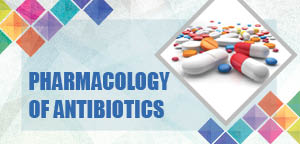
Antimicrobial medications are utilized to avoid or treat contaminations created by pathogenic microorganisms. The human body and nature contain numerous microorganisms, the vast majority of which live in a condition of adjust with the human host and don't bring about infection. At the point when the adjustment is problematic and contamination happens, attributes of the tainting microorganisms and the ampleness of host barrier systems are central point in the seriousness of the disease and the individual's capacity to regain.
Conditions that debilitate protection instruments increment the occurrence and seriousness of diseases and obstruct recuperation. Also, utilization of antimicrobial medications may prompt to genuine diseases created by medication safe microorganisms.
Track 8: Antimicrobial Peptides
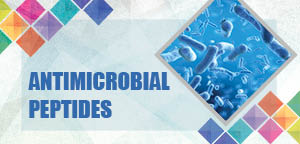
Antimicrobial peptides have been detached and described from tissues and living beings speaking to essentially every kingdom and phylum, going from prokaryotes to people. However, repetitive auxiliary and practical subjects in instruments of activity and protection are seen among peptides of broadly differing source and creation. Biochemical qualifications among the peptides themselves, target versus have cells, and the microenvironments in which these partners assemble, likely accommodate differing degrees of specific danger among different antimicrobial peptide sorts. Besides, numerous antimicrobial peptides utilize advanced and dynamic components of activity to impact quick and powerful exercises reliable with their probable parts in antimicrobial host barrier. In adjust, fruitful microbial pathogens have developed multifaceted and successful countermeasures to dodge presentation to and subvert components of antimicrobial peptides. A clearer acknowledgment of these restricting topics will essentially propel our comprehension of how antimicrobial peptides work in safeguard against disease. Moreover, this comprehension may give new models and systems to creating novel antimicrobial operators, that may likewise enlarge insusceptibility, reestablish power or intensify the components of traditional anti-microbials, and limit antimicrobial protection instruments among pathogens. From these points of view, the aim of this audit is to show the contemporary auxiliary and useful topics among components of antimicrobial peptide activity and protection.
Track 9: Medical Use of Antibiotics
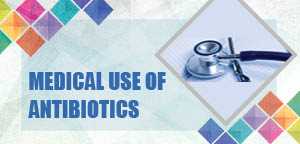
An antibiotic is given for the treatment of a contamination brought about by microorganisms or Bacteria. It is not successful against infections by viruses. On the off chance that you have a disease, it is imperative to know whether it is brought about by microorganisms or an infection. Most upper respiratory tract contaminations, for example, the basic icy and sore throats are brought on by infections - anti-infection agents don't conflict with these viruses. When the mindful pathogenic microorganism is now known or has been distinguished, complete treatment can be begun. This will for the most part include the utilization of a tight range antibiotic. To keep away from surgery anti-microbial might be given for non-confused intense an infected appendix. Viable treatment has been evidenced. Antibiotics might be given as a preventive measure (prophylactic) and this is generally constrained to at-hazard populaces, for example, those with a debilitated insusceptible framework (especially in HIV cases to avoid pneumonia), those taking immunosuppressive medications, growth patients and those having surgery. Their utilization in surgical systems is to help anticipate contamination of entry points made. They have an imperative part in dental anti-microbial prophylaxis where their utilization may counteract bacteremia and ensuing infective endocarditis. Anti-infection agents are additionally used to avert contamination in instances of neutropenia especially tumor related.
Track 10: Antibiotics for emerging and Re-emerging Diseases
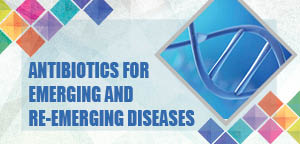
Antibiotics were the main viable treatment for skin inflammation. They are the most generally endorsed operators and are demonstrated for serious incendiary skin break out, broad trunk skin break out and direct facial skin inflammation not reacting to topical treatments. Reaction is variable; female patients with facial skin break out react more positively than male patients with stamped seborrhea and skin acne. Systemic antibiotics ought to be endorsed in a satisfactory measurement and the recurrence and span proceeded for whatever length of time that they are considered to work. Patients with skin inflammation are frequently regarded with numerous antibiotic agents and as a result, their vegetation is presented to a critical particular weight for resistance improvement.
Track 11: Antibiotics in Oncology
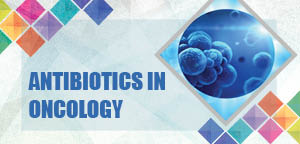
Down to earth rules for the conclusion and treatment of unending prostatitis are exhibited. Interminable prostatitis is delegated ceaseless bacterial prostatitis (culture-positive) and perpetual fiery prostatitis (culture-negative). In the event that constant bacterial prostatitis is suspected, in view of important indications or intermittent UTIs, fundamental urological conditions ought to be rejected by the accompanying tests: rectal examination, midstream urine culture and lingering urine. The determination ought to be affirmed by the Meares and Stamey strategy. Antibiotic treatment is prescribed for intense intensifications of unending prostatitis, endless bacterial prostatitis and perpetual provocative prostatitis, if there is clinical, bacteriological or supporting immunological proof of prostate contamination. Unless a patient presents with fever, anti-microbial treatment ought not to be started quickly aside from in instances of intense prostatitis or intense scenes in a patient with ceaseless bacterial prostatitis.
Track 12: Antibiotics of Veterinary Importance
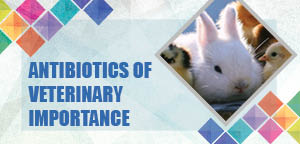
Utilization of anti-infection agents in homestead creatures is very overwhelming and broad, and has been a normal routine of ranchers in North America and Europe for a long while. Most meat, pork, poultry devoured by people contains little measures of anti-microbial. This is an aftereffect of endeavors to expand quality and amount of yield on ranches. The United States utilizes more than 29 million pounds of anti-infection agents in animals every year. The dominant part of medications is bolstered to creatures to advance their development in processing plant ranches. A production line ranch is normal for U.S. domesticated animal’s creation and comprises of keeping creatures in high-thickness restriction. Reliably utilizing drugs in homestead creatures raises worries this directing of anti-microbial has brought about an expansion in the anti-microbial safe microscopic organisms that can be destructive to people. Microorganisms in the human micro biome can figure out how to oppose more medications since people are presented to slight measures of antibiotics in the meats that they eat. Antibiotics are utilized as a part of creatures and can help microscopic organisms get to be distinctly impervious to the same or comparative medications utilized as a part of people.
Track 13: Interaction and Side-effects of Antibiotics
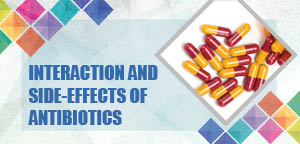
Basic reactions connected with anti-microbial incorporate loose bowels, heartburn and bloating, loss of craving and feeling debilitated, as indicated by NHS Choices. Antibiotic medications increment skin affectability to both common and simulated light. Anti-infection utilize can disturb the adjustments of microbes in the body, prompting to vaginal diseases in women and bringing on agitated stomach. Abuse of antibiotics can prompt to bacterial resistance. More side effects include Nausea, vomiting, headache, fever and swelling of face too.
Track 14: Antibiotics Overuse and Resistance
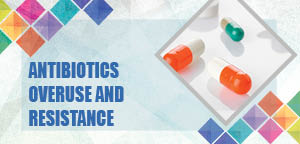
Visit and improper utilization of antibiotics can bring about microscopic organisms or different microorganisms to change so anti-infection agents don't conflict with them. This is called bacterial resistance or antibiotic resistance. Treating these safe microscopic organisms requires higher measurements of pharmaceutical or more grounded antibiotics. As a result of antibiotic abuse, certain microorganisms have turned out to be impervious to even the most effective anti-microbial accessible today.
Antibiotic resistance is an across the board issue, and one that the Centers for Disease Control and Prevention (CDC) calls "one of the world's most squeezing general medical issues." Bacteria those were once exceptionally receptive to anti-infection agents have turned out to be increasingly safe. Among those that are getting to be distinctly harder to treat are pneumococcal contaminations (which cause pneumonia, ear diseases, sinus contaminations, and meningitis), skin contaminations, and tuberculosis.
Track 15: The next Generation Approach of Antibiotics
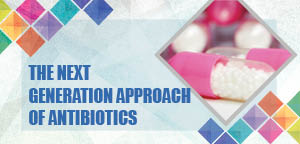
Wrong recommending, absence of consistence in taking pharmaceuticals and insightful spread uncontrolled utilization of medications prompted to development of multidrug resistance in clinically essential irresistible operators. More than 480000 new instances of multidrug-safe tuberculosis (MDR-TB) were accounted for by WHO in the year 2013 in hundred nations around the world. In this way, there is an earnest requirement for new era antibacterial which can successfully and unequivocally follow up on medication safe microorganisms. Distinctive methodologies of advancement of resistance in microorganisms include the progressions at sub-atomic level like transformations, over articulation of compounds and efflux.
Track 16: Mechanisms of Antibacterial Resistance
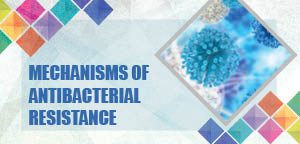
The bacterial protein LexA may assume a key part in the obtaining of bacterial transformations offering imperviousness to quinolones and rifampicin. DNA harm initiates the SOS quality repressor LexA to experience autoproteolytic action. This incorporates the translation of qualities encoding Pol II, Pol IV, and Pol V, which are three unimportant DNA polymerases that are required for transformation in light of DNA damage. The anti-microbial activity against the pathogen can be viewed as an ecological weight. Those microbes with a transformation that permits them to survive live to imitate. They then pass this quality to their posterity, which prompts to the development of a completely safe settlement. Despite the fact that these chromosomal transformations may appear to profit the microorganisms by giving anti-infection resistance, they additionally present a cost of wellness.
Track 17: Genetics of Antimicrobial Resistance
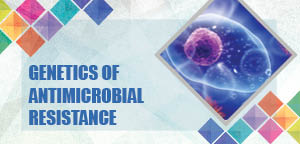
Antimicrobial safe strains of microscopic organisms are an expanding risk to creature and human wellbeing. Resistance systems to go around the dangerous activity of antimicrobials have been distinguished and depicted for every single known antimicrobial at present accessible for clinical use in human and veterinary drug. Gained bacterial anti-microbial resistance can come about because of the transformation of typical cell qualities, the obtaining of remote resistance qualities, or a blend of these two components. The most widely recognized resistance systems utilized by microorganisms incorporate enzymatic debasement or adjustment of the antimicrobial, change in the antimicrobial target site, diminished cell divider penetrability to antimicrobials, and dynamic efflux of the antimicrobial over the cell layer. The spread of versatile hereditary components, for example, plasmids, transposons, and integrons has incredibly added to the fast dispersal of antimicrobial resistance among a few bacterial genera of human and veterinary significance. The adaptability with which microbes adjust to their surroundings and trade DNA between various genera highlights the need to execute powerful antimicrobial stewardship and contamination control programs in both human and veterinary drug.
Track 18: Alternatives to antibiotics
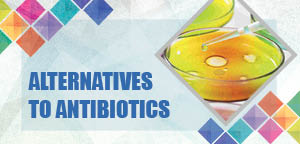
Germs are all over and everywhere. Some move to our bodies and benefit us, for example, the cordial microscopic organisms that colonize the linings of the insides, upper respiratory tract, and lower urinary framework, out-contending awful microorganisms, adding to safe protection and great absorption. Different organisms – infections, microscopic organisms, parasites – wreak devastation when they attack our bodies. Luckily, various herbs have antimicrobial impacts. A number of these herbs are culinary herbs and flavors, for example, garlic, ginger, thyme, and cinnamon. That implies, regardless of where you will be, you can likely locate a home grown partner at the neighborhood market. Herbs don't go about as fast or as strongly as medications. For genuine diseases, antibiotics can spare lives. Then again, herbs create fewer symptoms and don't appear to be connected with the microbial resistance that sicknesses anti-infection agent.
Track 19: Antibiotics: Countries
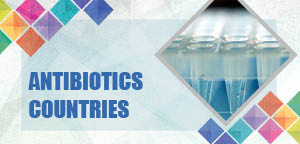
With antibiotic resistance and abuse a noteworthy worldwide concern, and a critical test for worldwide social insurance suppliers and strategy producers alike, understanding the world's utilization of anti-infection agents is a vital step.
It’s in Turkey where individuals take the most antibiotics – 42.2 measurements are endorsed per 1,000 individuals consistently. Greece is next with somewhere in the range of 10 dosages bringing down at 32.2. The main three is finished by France with 30.1. The rundown is altogether involved European countries, with Belgium, Italy and Luxembourg every returning figure in abundance of 25 measurements endorsed every day. Spain, Ireland, Slovakia and Poland finish the main 10. The OECD normal sits at 20.7, with the most minimal utilization of anti-infection agents found in Chile – only 9.4 measurements.
Market Analysis
MARKET ANALYSIS
An antimicrobial is an agent that kills microorganisms or inhibits their growth. They are classified according to their mode of action on specific microorganism .Depending on the range of bacterial species susceptible to these agents antibacterial are classified as broad spectrum, intermediate-spectrum, or narrow- spectrum. Multidrug resistant (MDR) are those microbes which are resistant to multiple antimicrobials .Resistant microorganisms (compiling fungi, bacteria, parasites and viruses) have the ability to withstand effects of antimicrobial drugs.
Antibacterial drugs are chemical compounds used to treat infections caused by bacteria either by killing or inhibiting the growth of bacteria. The term antibiotic is often used synonymously with an antibacterial. However, antibiotics are agents that work against microorganisms such as bacteria, fungi, and parasites but are not effective against viruses. The term antibiotic was originally coined to refer to any compound of microbial origin, which is antagonistic to the growth of the microbe. Antibacterial acts via various mechanisms such as the inhibition of cell wall synthesis, the inhibition of nucleic acid synthesis, the disruption of the cell membrane, and the inhibition of protein synthesis. They can be bacteriostatic or bactericidal in nature, i.e., they either block vital processes in bacteria, kill the bacteria, or halt them from growing. Antibiotics that affect a wide range of bacteria are called broad-spectrum antibiotics (e.g., amoxicillin and gentamicin). Antibiotics that affect only a few types of bacteria are called narrow spectrum antibiotics (e.g., penicillin).
Global Market
Antibacterial usage is expected to decrease slightly in developed countries as a result of an increasing pressure to combat antimicrobial resistance (AMR). Despite this, the antibacterial drug market is forecast to grow from USD27.7 Billion in 2017 to USD35.6 Billion in 2022, at a compound annual growth rate (CAGR) of 3.97%.
Global antibacterial vaccination market is expected to experience healthy growth across the forecast period due to rising profits for several classes of drugs. Vaccines will still be the leading revenue-generating drugs in the market in 2022, despite the influx of new protein synthesis inhibitors and the release of several new cell-wall synthesis inhibitors.
Antibiotics: technologies and global markets provides an in-depth analysis of the global market trends for systemic antibiotics with data from 2016, estimated data from 2013, and projected data for 2018. Rising concerns over healthcare costs have driven many pharmaceutical companies to look for alternatives to maintain their existing profits while improving them in the future. The report includes the profiles and market shares of seven key players in the global antibiotics market.
Multiplayer solution In 2016, UN Member States committed to addressing the growing problem of antimicrobial resistance in the 2030 Agenda for Sustainable Development. Indeed, AMR is expected to affect the potential achievement of Sustainable Development Goal 3 (Good Health & Wellbeing), among others. That AMR has risen up the global agenda is due at Four main groups of pathogenic microorganisms are relevant to current efforts to curb AMR: bacteria (such as those causing pneumonia and meningitis), viruses (such as HIV), fungi (such as Candida) and parasites (such as Plasmodium falciparum, which causes malaria). There is large variation among these groups in how resistance emerges and is transferred.
Global Antibiotics Market By Region,Through 2019($ Millions)
America Region
The antibiotics market was valued at USD 39.8 million in 2015 and is expected to witness a CAGR of 4.0% over the forecast period. Increasing efforts are being witnessed toward the development of advanced products. According to the data published by the Pew Charitable Trust, in March 2016, about 37 promising molecules were being investigated within the U.S. market. Majority of these, are in phase II clinical trials and are anticipated to hit the market between 2018 - 2020.
The antibiotics market is expected to reach USD 57.0 billion by 2024, according to the new report by Grand View Research, Inc. Rising prevalence of infectious diseases especially in developing regions such as Asia Pacific and MEA is anticipated to contribute towards market growth. North America dominated the animal antimicrobials and antibiotics markets. However, the market share of this region will decrease to 27%, primarily due to the regulatory ban on the use of antibiotics announced in the U.S. At the same time, Asia and Latin America are poised to grow at a CAGR of 6% to 8% in the forecast period; this growth is largely driven by the increased urbanization, rising disposable incomes, increase in the demand for animal products and the increasing trend of pet ownerships in these regions.
More than 15.0% of the deaths, in children below the age of five, are estimated to be due to pneumonia and according to the statistics provided by the WHO about 9.2 million deaths were recorded
Europe Region
Antibiotic resistance is a serious problem globally. New antibiotics to tackle resistant bacteria are urgently needed; however, a recent report from the European Centre for Disease Prevention and Control and the European Medicines Agency (EMA) warns of an almost empty pipeline, leaving patients vulnerable to dangerous infections. If new antibiotics are not developed, the entire healthcare industry could face challenges not seen since the pre-bacteria era. Public-private partnerships are encouraging specific programs that will address these needs; in certain regions, government agencies are working with the pharmaceutical industry to provide support to the declining antibiotic pipeline. “Development of novel antibiotics to combat multidrug-resistant strains, and targeting non-multiplying bacteria are expected to play a vital role in market growth,”
Asia pacific Region
The global market for systemic antibiotics is expected to grow to $41.2 billion by 2018 with a compound annual growth rate (CAGR) of 0.8% between 2013 through 2018. Asian countries account for the fastest-growing market with a five-year CAGR of 1.2% due to the increasing aging population, increasing GDP rate and increasing awareness about healthcare.
The global systemic antibiotics market is primarily driven by the aging population worldwide, the increasing prevalence of hospital-acquired infections, and the resultant increase in infectious disease and rising demand for novel antibiotics from the pharmaceutical industry.
Nevertheless, a major paradigm shift in the regulatory framework has caused a positive impact on the overall growth of the antibiotics market. Economic conditions and cost-containment issues have compelled North American and European antibiotic manufacturers to explore new regions, such as India, China and Brazil, for growth opportunities.
Learn More
Top Antibiotics Universities Worldwide:
Antibiotics Universities | Antibiotics Conferences
Armenian State Agrarian University | Graz University of Technology | University of Natural Resources & Applied Life Sciences | Catholic University of Leuven | Ghent University | University of Ruse | University of Zagreb | Cyprus University of Technology | National Engineering School in Biology | University of Lille | University of Helsinki | University of Dundee | University of Bristol | University of Birmingham | University of Leicester | Euroscicon | University of Glasgow | Washington University School of Medicine in St. Louis | University of Hertfordshire | Euroscicon Conferences | University of Manchester | University of Queenland | University of south Carolina | University of Southampton | University of Nottingham | Queen Mary University of London | University of Sheffield | University of Toronto | Duke University | University of Texas Austin | University of Chicago | Princeton University | Euroscicon Conferences | New York University | Pennsylvania State University | | Euroscicon | Chinese University of Hong Kong | Nanyang Technological University | Shandong University.
Europe Antibiotics Universities | Antibiotics Conferences
University of Oxford | University of Cambridge | University College London | Euroscicon | University of Edinburgh | Imperial College London | University of Manchester | Catholic University of Leuven | University of Amsterdam | King's College London | University of Copenhagen | University of Glasgow | University of Leeds | Ghent University | University of Groningen | University of Helsinki | Bristol University | Medical University of Vienna | Second University of Naples | University of Copenhagen | Medical University of Innsbruck | Bispebjerg University Hospital | University of Lille | Ludwig Maximilians University Munich | Charité-Universitätsmedizin | Wroclaw Medical University | Technical University Munich | University of Messina | University Laboratory of Medical Research-University of Verona, Italy | Herlev and Gentofte Hospital, University of Copenhagen, Copenhagen, Denmark | Wageningen University, the Netherlands | University Medical Centre Utrecht, The Netherlands
USA Antibiotics Universities | Antibiotics Conferences
Harvard University | Stanford University | Massachusetts Institute of Technology | Euroscicon | University of California Berkeley | Euroscicon Conferences | University of Michigan | University of Washington | Columbia University New York | University of California Los Angeles UCLA | University of Pennsylvania | Yale University | Johns Hopkins University | University of Wisconsin Madison | University of California San Diego | University of Veracruz, Veracruz, México | Stanford University, Stanford, USA | Universidad Autonoma de Sinaloa, Mexico | University of California, Davis, USA | Federal University of Bahia, Salvador, Bahia, Brazil | Universidad Autónoma, Mexico | University of Sao Paulo School, Brazil | University Estadual Paulista, Brazil | College of Medicine Miguel Aleman Valdes, Veracruz, Veracruz, Mexico | University of Brasília, Brasília, Brazil | Institute of Biomedical Research, Brazil
Asia Antibiotics Universities | Antibiotics Conferences
Tsinghua University | Peking University | National University of Singapore | Euroscicon Conferences | Euroscicon | University of Melbourne | University of New South Wales | University of Queensland | Australian National University | University of Sydney | Kyoto University | Zhejiang University | National Taiwan University | Shanghai Jiao Tong University | University of Hong Kong | Euroscicon Conferences | Fudan University | Monash University | University of Adelaide | University of Western Australia | The University of Western Australia, Perth, Australia | The Chinese University of Hong Kong | Prince of Wales Hospital, Hong Kong, China | The Hong Kong Polytechnic University, Hong Kong, China | Murdoch Childrens Research Institute, Melbourne, Australia | University of Sydney, Sydney, New South Wales, Australia | The University of Melbourne | University of Newcastle, Tamworth, Australia | Nanchang University, Nanchang, China | Zhejiang University School of Medicine, Hangzhou, China | Hong Kong Polytechnic University, Hong Kong, China
Africa Antibiotics Universities | Antibiotics Conferences
University of the Witwatersrand | Stellenbosch University | University of Pretoria | University of Kwazulu Natal | Cairo University | University of the Western Cape | University of Johannesburg| University of Ibadan | Euroscicon Conferences | Alexandria University | Rhodes University | North West University | American University in Cairo | University of South Africa | Mansoura University | Makerere University | Ain Shams University | University of the Free State | Moi University | Euroscicon | Nelson Mandela Metropolitan University | Assiut University | Benha University | Egerton University | Universidade Eduardo Mondlane | Zagazig University | Université Cadi Ayyad Marrakech | Covenant University.
Antibiotics Associations | Antibiotics Conferences
International Federation for Tropical Medicine | Euroscicon Conferences | Calcutta School of Tropical Medicine | The International Society of Travel Medicine | Liverpool Associates in Tropical Health | American Society of Tropical Medicine and Hygiene | Royal Society of Tropical Medicine and Hygiene | American Society of Parasitologists | Australasian College of Tropical Medicine | Euroscicon | Australian Society for Parasitology | British Society for Parasitology | Society of Nematologists | American Society for Microbiology | Euroscicon Conferences | Argentine Assocation of Microbiology | Association of Medical Microbiologists | Euroscicon | Malaysian Society of Parasitology and Tropical Medicine | Australian Society for Microbiology | British Infection Society | Philippine Society for Microbiology and Infectious Diseases | Far Eastern Association Of Tropical Medicine | Brazilian Society of Tropical Medicine | The Korean Society for Parasitology and Tropical Medicine| Association of Institutions for Tropical Veterinary Medicine | Tropical Pathology & Infectious Disease Association | The International Society for Neglected Tropical Diseases | The Association of Microbiologists of India | International Union of Microbiological Societies | Indian Association of Medical Microbiologists | Euroscicon Conferences | Euroscicon | Swiss Society for Microbiology | Scottish Microbiology Association | Infectious Diseases Society of America | Euroscicon | International Society for Infectious Diseases | National Foundation for Infectious Diseases | Infectious Disease Association of California | British Infection Association | Euroscicon Conferences | The Japanese Association for Infectious Diseases | ASID - Australasian Society for Infectious Diseases | HIV Medicine Association.
Antibiotics Highlights | Antibiotics Conferences
Discovery of Antibiotics | Antibiotic Therapy | Production in Antibiotics | Antibiotic Resistance and Prevention | Antimicrobial resistance | Drug Discovery Technologies in Antibiotics | Pharmacology of Antibiotics | Antimicrobial Peptides | Euroscicon Conferences | Medical Use of Antibiotics | Antibiotics for emerging and Re-emerging Diseases | Antibiotics in Oncology | Euroscicon | Antibiotics of Veterinary Importance | Antibiotics Overuse and Resistance | Interaction and Side-effects of Antibiotics | Euroscicon | The next Generation Approach of Antibiotics | Mechanisms of Antibacterial Resistance | Genetics of Antimicrobial Resistance | Alternatives to antibiotics | Antibiotics Countries.
Antibiotics Jobs | Antibiotics Conferences
Medical Science Liaison (MSL) – Antibiotics | The Infection Medical Chambers Partnership Ltd | Pharmacist | Vice Chancellor & Chief Executive Officer-London South Bank University | Medical Affairs Manager & Pharmacist | Group Manufacturing And Logistics Director - Dechra Pharmaceuticals PLC | Trust Doctor - University College London Hospitals NHS Foundation Trust | Information Analyst , Data & Business Information Team, Tech & Improvement - Hertfordshire County Council | Market Access And Outcomes Strategy- RTI Health Solutions | Project Manager - Catalent Pharma Solutions | QA, RA & QP - Life Sciences | Echnical Support - SSP World Wide | Distributor – Nucerityinternational | MSAT Research Associate II - Astrazenca Biologics | Owner And Director - Gender GP Online Transgender Clinic.
Antibiotics Companies in Europe | Antibiotics Conferences
Discovery Fine Chemicals | Euroscicon | Ms Technologies Ltd | Istituto Lusofarmaco D'italia Spa | Euroscicon Conferences | Fresenius Kabi Ipsum | Cit S.R.L. | Deretil, S.A. | Deretil Agronutritional | Antibioticos Sa | Kon-Pharma Gmbh | Pharmavertrieb Heinze Gmbh | Smaltis | Laboratoire Innotech International | Ferdosigroup | Hexpol Tpe Gmbh | Endurocide | Sturge Industries Limited | Panaz | Emsar Polymers (Uk) Ltd | Bioclad Ltd | Baxx Europe.
Antibiotics Companies in USA | Antibiotics Conferences
Abbott Chemicals Inc | Acris Antibodies, Inc | Alami Therapeutics Inc | Alpharma Inc | Euroscicon Conferences | American Antibiotics, Llc | Animal Health Div | Antibiotic Alternatives Llc | Aureogen Biosciences | Biodesign International Inc | Cell Care Therapeutics, Inc | Cytomx Therapeutics, Inc | Demicrobe Inc | Dr Reddy's Laboratories Tennessee, Llc | M&D International | Microbiotix Inc | Euroscicon | Nancy Ging Lcsw | Nanoantibiotics Inc | Niroga Drug Discovery Llc | Pacific Immunology | Euroscicon | Performance Probiotics Llc | Pfizer Manufacturing Llc | Euroscicon Conferences | Rempex Pharmaceuticals, Inc | Santa Rosa Antibiotic Effectiveness Project | Protein Biosystems.
Antibiotics Companies in Asia and Middle East | Antibiotics Conferences
Eastwell International Trading Co. Ltd | Euroscicon | Fidei International Developing Company | Euroscicon Conferences | Global Biologicals Co., Ltd | Sihuan Pharmaceutical Company | Zhejiang Yuntao Biotechnology Co.,Ltd | Pingyuan Sihuan Pharmaceutical Co., Ltd | Hipharma Limited | Reyoung Pharmaceutical Co., Ltd | Nootan Pharmaceuticals | Zuche Pharmaceuticals Private Limited.
Europe Conferences | Antibiotics Conferences
International Conference on Advances in Microbiology and Public Health March 18-19, 2019 Vienna, Austria; International Conference on Immunology and Evolution of Infectious Diseases April 29-30, 2019 London, UK; Microbiology Conference 2018 Oct 15-16, 2018 Paris, France; International Conference on Epidemiology and Public Health February 27 - 28, 2019 Prague, Czech Republic; EuroScicon Conference on Infectious Diseases and STD-AIDS April 22-23, 2019 Athens, Greece; Annual Conference on Infectious Diseases and Public Health April 22-23, 2019 Athens, Greece; International Conference on Infectious Diseases April 22 -23, 2019 Rome, Italy; Euro Global Summit on Allergy July 11-12, 2019 Prague, Czech Republic; International Conference on Healthcare May 27-29, 2019 Barcelona, Spain; EuroSciCon Conference on Immunology March 11-13, 2019 Amsterdam, Netherlands; World Congress on Immunology and Oncology April 18-19, 2019, Paris, France; International Virology Conferences July 02-04, 2018 Vienna, Austria; International Pharmaceutical Microbiology Conferences and Biotechnology Conferences May 21-23, 2018 Vienna, Austria; World Microbiology Conferences & Immunology Conferences June 28-29, 2018 Amsterdam, Netherlands; Euroscicon Conference on Clinical Pathology and Bacterial Diseases February 27-28, 2019 Prague, Czech Republic; International Conference on Internal Medicine & Patient Care March 25-26, 2019 Rome, Italy; International Conference on Pathology & Cancer Epidemiology October 21-22, 2019 Rome, Italy; Annual Congress on Toxicology and Pharmacology May 30-31, 2019 Oslo, Norway.
USA Conferences | Antibiotics Conferences
International Conference on Parasitology and Infectious Diseases July 25-26, 2019 Philadelphia, USA; World Congress on Clinical Microbiology and Infectious Diseases September 12-13, 2019 Baltimore, USA; International Internal Medicine Conferences & Practice and Primary Care Conferences, April 4-5, 2018 Miami, USA; Annual Antimicrobials Conferences and Drug Resistance Conferences September 24-25, 2018 Montreal, Canada; International Antimicrobials Conferences and Antibiotics Resistance Conferences April 20-21, 2018 Las Vegas, USA; World Healthcare Conferences & Hospital Management Conferences March 26-27, 2018 Orlando, USA; International Internal Medicine Conferences and Hospital Medicine Conferences October 23-24, 2018 Toronto, Canada; World Congress Embryology Conferences and In Vitro Fertilization Conferences March 30-31, 2018 Orlando, USA; International Integrative Medicine Conferences and Alternative treatments Conferences October 22-23, 2018 Boston, USA.
Asia Conferences | Antibiotics Conferences
World Toxicology and Pharmacology Conference August 22-23, 2019 Tokyo, Japan; Infectious Diseases Conferences August 13-14,2018 Tokyo, Japan; Clinical Diabetes Conferences August 22-23, 2018 Tokyo, Japan; World Pathology Week Conference June 19-20, 2019 Tokyo, Japan; Veterinary and Animal Science Conference September 12-13, 2019 Sydney, Australia; Immunology Conference March 11-13, 2019 Amsterdam, Netherlands; Molecular Biology Conference Dec 9-10, 2019 Amsterdam, Netherlands; Infectious Diseases & STD-AIDS Conference April 22-23, 2019 Athens, Greece; Infectious Diseases and Public Health April 22-23, 2019 Athens, Greece.
